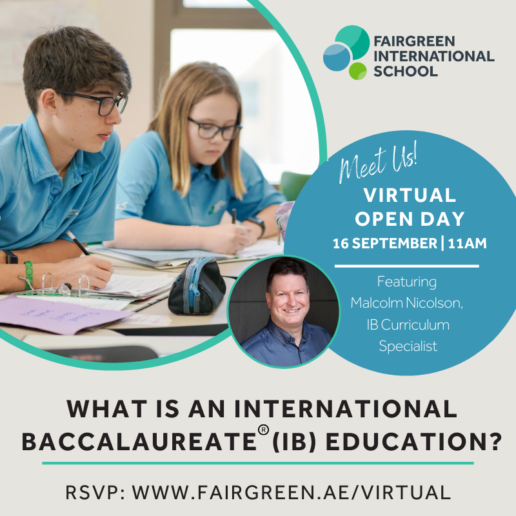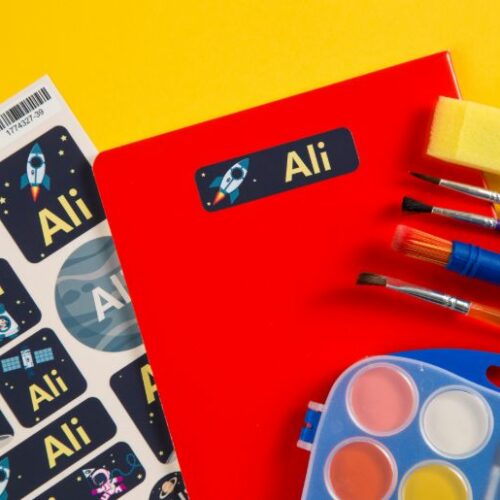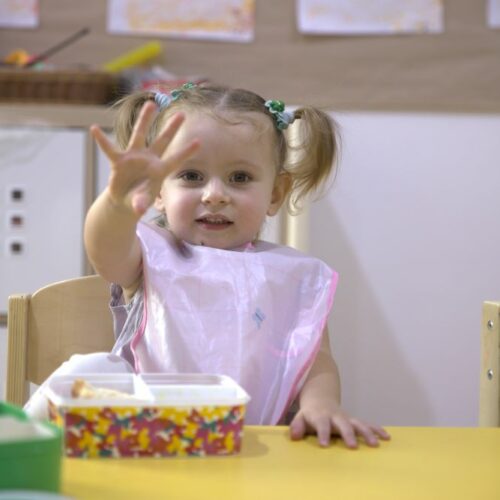Why Choose an IB Education for your Child?
There is probably no other place on Earth where school choice is so abundant than here in Dubai. When considering what school is right for your child, one of the most important considerations is the curriculum: how and what your child will be learning. One of the buzzwords, or rather buzz acronyms, in education today is “IB.”

What is an IB education? Even though it launched more than 50 years ago, the International Baccalaureate still needs explaining, especially to parents just beginning to research school options for their little ones and to some expats who have come to Dubai from countries where the IB is just beginning to take root.
Educators around the world, however, understand the history and opportunities that an IB education affords students, and why colleges and universities tend to admit IB students at a higher rate than their non-IB counterparts. So, what is so special about an IB education?
Preview of Presentation at Fairgreen International School’s Virtual Open Day (16th Sept at 11am via Zoom)
Malcolm Nicolson, acknowledged as a world-class educational thinker and IB Specialist, who worked for the International Baccalaureate as Head of Curriculum Development for nearly a decade, answers some key questions about the IB as a preview of a broader online presentation he will be giving at Fairgreen International School’s upcoming Virtual Open Day for prospective families on Wednesday, 16 September, at 11am via Zoom conference.
Located in The Sustainable City (TSC) Dubai, Fairgreen is an International Baccalaureate (IB) continuum school founded by Esol Education, and it is the first sustainability-focused school in Dubai, incorporating sustainability as an integral part of its IB programme.

What are some of the key differences between a standard UK or American-based curriculum, versus the IB?
There are many differences in practice and philosophy. IB programmes are explicit in the way they address character development and guiding children to learn the skills that will help them to make a difference in the world. The IB programmes maintain breadth and balance in addition to depth and rigour, whereas other systems may focus exclusively on assessment preparation and rigour.
IB programmes are designed for students to become global citizens and be prepared to adapt to a changing world, rather than being prepared to sit examinations or to focus upon a narrow range of learning expectations.
How is the International Baccalaureate advantageous for expat children?
IB programmes are flexible and designed to accommodate children who may move from one school or one country to another. As well as students learning to become adaptable, the curriculum is able to adjust to the needs of students. The IB certificates are valued and respected by universities and employers across the world. The demand to learn at least two languages in the IB programmes means that students are culturally attuned and linguistically prepared to be global citizens in differing settings.
Fairgreen International School has a focus on sustainability as part of their curriculum. How does teaching students to value sustainability in all of its forms fit in well with the IB programme?
IB programmes have at their heart a mission to make the world a better place. This fits beautifully with the Fairgreen ethos. In IB programmes students learn meaningful content in local and global contexts, so suitable content can be chosen by teachers in order to develop a deep understanding. This means that Fairgreen teachers can teach the concepts of economic, environmental and societal sustainability using local and global case studies which are relevant and engaging to the students. All IB programmes are dedicated to service learning experiences which lend themselves to developing a passion for sustainability.
About Malcolm Nicolson
After teaching in the UK, Bahamas and Thailand, he became Head of MYP Development for the IB (International Baccalaureate) from 2007 till 2013 and Head of Diploma Programme (DP) Development from 2013 to 2015. He initiated and directed MYP: The Next Chapter, the first whole programme review conducted by the IB, and introduced Approaches To Learning in the Diploma Programme.
Malcolm has authored several key IB guides, including: History of the MYP (2010); MYP: From principles into practice (2008 and pilot 2012); and DP: From principles into practice (2015). He is acknowledged as a world-class educational thinker and a real authority on the International Baccalaureate.












Comments